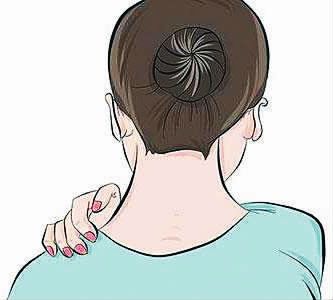Fibromyalgia Syndrome (FMS) affects an estimated 2 percent of the population.
What is Fibromyalgia Syndrome?
Fibromyalgia is a syndrome, a recognizable constellation of symptoms of unknown causation. The primary symptom of fibromyalgia is widespread muscle pain. The majority of sufferers are women between the ages of 34 and 56. Ten to twenty percent of those with FMS are severely debilitated.

Fibromyalgia Syndrome (FMS) affects an estimated 2 percent of the population.
What is Fibromyalgia Syndrome?
Fibromyalgia is a syndrome, a recognizable constellation of symptoms of unknown causation. The primary symptom of fibromyalgia is widespread muscle pain. The majority of sufferers are women between the ages of 34 and 56. Ten to twenty percent of those with FMS are severely debilitated.
Primary symptoms:
• Pain
• Fatigue
• Sleep disturbances
Secondary symptoms:
• Stiffness
• Headache and facial pain
• Abdominal discomfort
• Irritable bladder
• Numbness or tingling
• Chest pain
• Cognitive disorders
• Environmental sensitivity
• Disorientation & balance problems
Fibromyalgia is diagnosed when there is a history of widespread pain in all four quadrants of the body for a minimum duration of three months and pain when pressure is applied to at least 11 of 18 designated tender points on the body. This condition does not result in any physical damage to the body or its tissues and there are no laboratory tests which can confirm this diagnosis.
From an Eastern Perspective
The Oriental medicine theory of pain is expressed in this famous Chinese saying: “Bu tong ze tong, tong ze bu tong” which means “free flow: no pain, no free flow: pain.”
Pain is seen as a disruption of the flow of Qi within the body. The disruption of Qi that results in fibromyalgia is usually associated with disharmonies of the Liver, Spleen, Kidney and Heart Systems.
The Acupuncture Treatment
A disruption in Qi, caused by an imbalance of ying (negative energy) and yang (positive energy), is the origin of illness and disease. Acupuncture brings ying and yang back into balance by unblocking the Qi and restores the body to a healthy state. Acupuncture can help control pain, increase energy and improve sleep and other symptoms.
Oriental Medicine does not recognize fibromyalgia as one particular disease pattern. Instead, it aims to treat the specific symptoms that are unique to each individual depending on their constitution, emotional state, intensity and location of their pain, digestive health, sleeping patterns and an array of other signs and symptoms. Therefore, if 10 people are treated with Oriental medicine for fibromyalgia, each of these 10 people will receive a unique, customized treatment with different acupuncture points, different herbs and different lifestyle and dietary recommendations.
If you have fibromyalgia, acupuncture and Oriental medicine may be what you’ve been looking for to ease your symptoms and reclaim your health and vitality.
For a complete consultation, please visit Master Acupuncture Healing Centre
